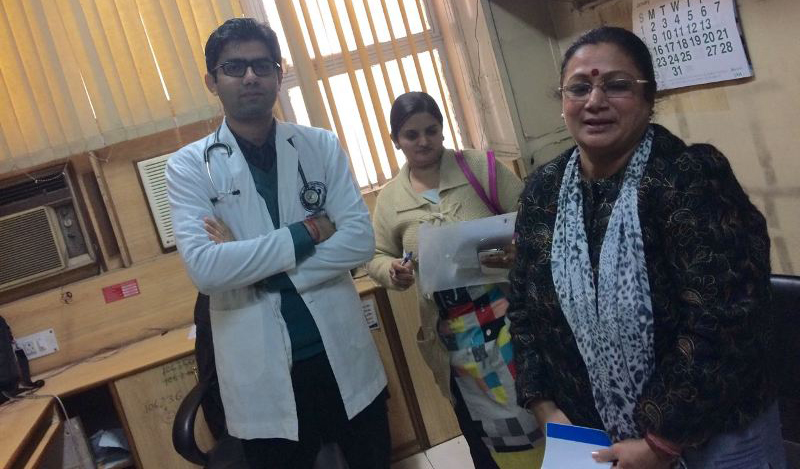Centre for Social Research ran Project Wajood in order to address the pressing issue of Domestic Violence and strengthening support services for the same in collaboration with Population Services International. Acting as first points of contact for survivors of violence, doctors and paramedics are important stakeholders to intervene in the cycle of violence. CSR has been providing Gender Sensitisation Trainings to doctors and paramedics to help them identify survivors who could then be referred to counselling centres for further aid and support. In order to further strengthen the close network around survivors to make help immediately accessible to them, a series of interviews were conducted with senior doctors across Delhi/NCR to understand their role and recommendations on ways to take this forward.


The interviews were conducted with 23 senior doctors such as gynecologists/obstetricians, general physicians, Chief Medical Officers from government hospitals as well as private clinics by Project Coordinator, Ms. Suhasini Mukherjee and Counsellors, Ms. Kamlesh Premi, Ms. Rakhi Sharma and Ms. Sugandha Singh.
Domestic violence was viewed by the doctors as highly prevalent and requiring urgent attention. Some of the recommendations put forward by them are listed below-
- Inclusion of the role of doctors in the Protection of Women from Domestic Violence Act
- Mandate to make identification, screening and referral of Domestic Violence cases compulsory
- Training and capacity building of paramedic staff at every level
- Display IEC material in hospitals and clinics so information regarding help available is disseminated to the wider public
- It should be mandatory for large corporate hospitals obtaining NABH (National accreditation board for hospitals and healthcare providers) certification from the Quality council of India to have a separate centre within the premises of their hospital for counseling of survivors of violence
- Inclusion of a mandatory chapter on gender and violence sensitisation training at the level of MBBS for all doctors perhaps in the PSM (preventive and social medicine) subject.
- Mobile vans with counsellors who can be sent by doctors for regular home visits to follow up on survivors of violence
- Close network between doctors, police and NGOs so survivors of Domestic Violence can be provided immediate support services


The overall response of the doctors has been positive with regard to going the extra mile to support survivors of violence. Some of the doctors encouraged us to use their recommendations to advocate at the policy level and get some changes made in the current line of work to support survivors of violence when they reach out for help, particularly in government hospitals where most such cases go unidentified with survivors leaving with a prescription of medicines or a plaster to fix the outer damage to their physical selves while the root and extent of their trauma goes unnoticed. We write this with the hope of involving more people in the struggle towards preventing and responding to violence against women.




